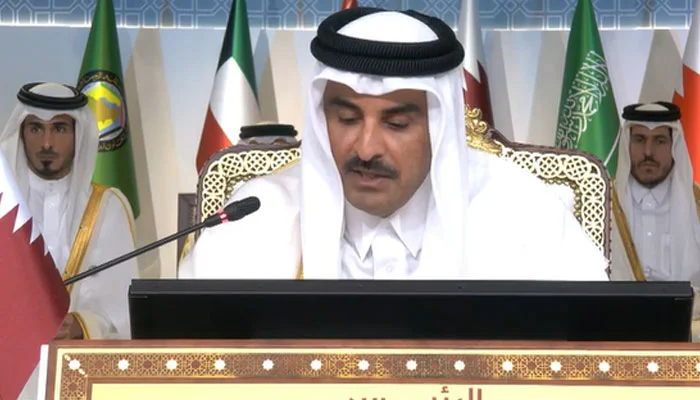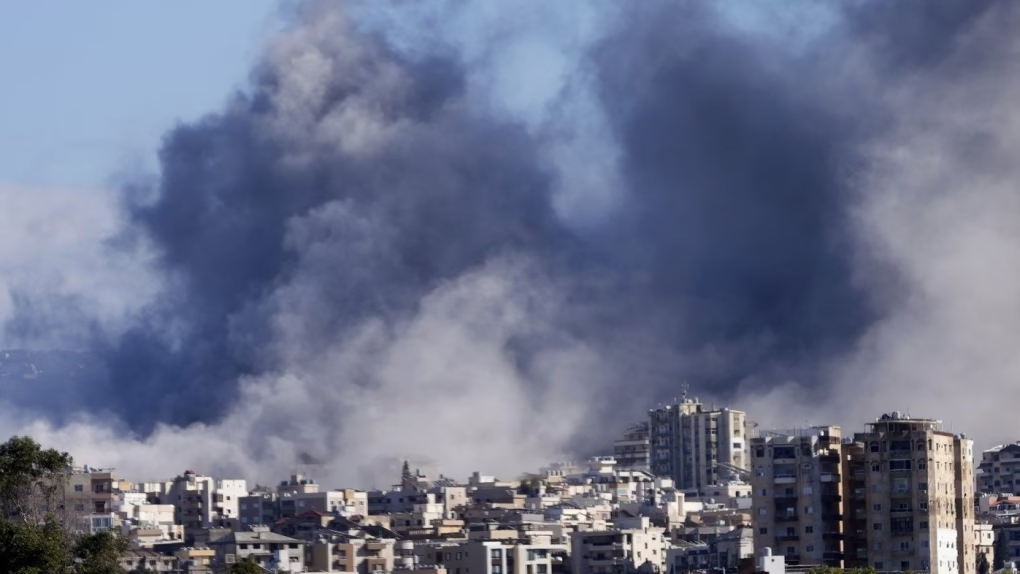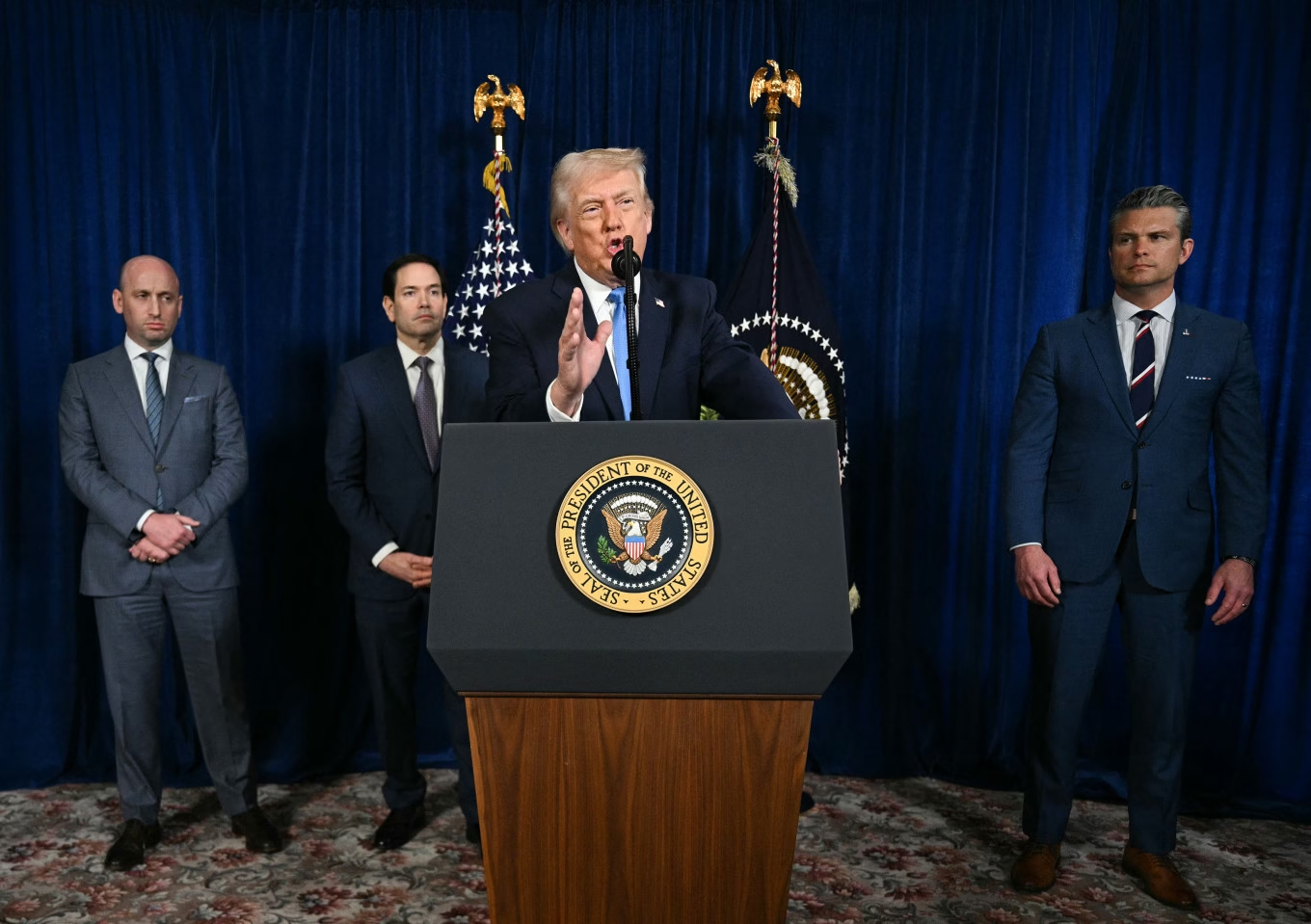Qatar’s Emir, Sheikh Tamim bin Hamad Al Thani, delivered a powerful address during the 44th Gulf Cooperation Council (GCC) summit in Doha, expressing deep concern over the ongoing human rights violations in occupied Palestine. Sheikh Tamim emphasized the need for Israel to comprehend that the era of occupation has come to an end and called for a resumption of negotiations.
Speaking at the Security Council, the Qatari Emir urged Israel to return to the negotiating table, highlighting that temporary ceasefires could not be a substitute for a comprehensive and lasting peace. He underscored the futility of perpetuating conflict and the necessity for a diplomatic resolution to address the longstanding issues in the region.
Sheikh Tamim strongly criticized the occupying authorities in Palestine, stating that they have committed egregious violations against the fundamental rights of the Palestinian people. He deemed the international community’s tolerance of Israeli actions as shameful, emphasizing that the world must not permit the continuation of such actions over an extended period.
The Qatari leader called for Israel to understand that the era of occupation has concluded, and a new chapter of dialogue and negotiation must begin. He condemned the killing of civilians in Gaza and expressed solidarity with the Palestinian cause, urging the global community to take decisive actions to bring about a just and lasting solution.
The Emir’s call for renewed negotiations and condemnation of the ongoing violence reflect Qatar’s commitment to advocating for the rights and well-being of the Palestinian people. It also underscores the broader regional sentiment that seeks a peaceful and diplomatic resolution to the Israel-Palestine conflict.
As the international community grapples with the complexities of the Middle East, Sheikh Tamim’s address serves as a reminder of the urgent need for concerted efforts towards achieving a comprehensive peace agreement. The GCC summit provides a platform for regional leaders to collectively address challenges, promote stability, and work towards fostering a climate of understanding and cooperation in the pursuit of lasting peace in the region.



